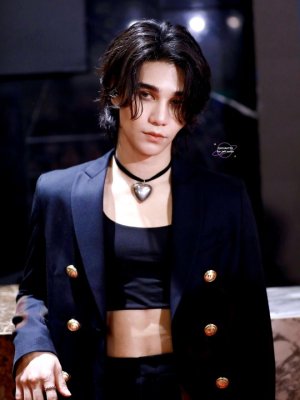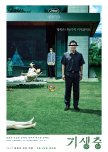Această recenzie poate conține spoilere
Statement on social class divides
Parasite is one of deepest films I have ever seen and of course it was written and directed by Bong Joon-Ho. There is a reason why it was nominated and won so many awards.
At first glance Parasite is just a typical good movie exploring the difference in dynamics between a rich family and a poor one and the clashing that occurs between them. However, if you really delve into the details and symbolisms that Bong Joon-Ho carefully curated in this film there is so much more to be uncovered namely the pointing out the broken system which perpetuates the divide between the upper social class from the lower one. I think that in order to grasp all the details rewatching the movie is a necessity and even one re-watch might not be enough.
A detail that I just learned is that Bong Joon-Ho actually wrote this film based on his own experience tutoring an upper class family, obviously not the entire plot.
**************************Spoilers and analysis from here******************************
-
-
As I said before Parasite is a reflection of the struggles and clashes between rich and poor and the end of the film shows the harsh reality that poor families are not able to rise from their low status no matter how hard they try because of the broken social system.
Here are some symbols and key themes that Bong Joon-Ho uses throughout the film to express these ideas. (Also comment more themes/ analysis you saw in the film. I'm curious to hear other thoughts!)
The most famous being Ram-Don/Chapaguri:
It's a combo of Neoguri and Chappagetti korean instant ramen noodles (very inexpensive). But the Park family adds steak, this shows the drastic difference in social status between the poor Kim family who probably would rarely be able to afford expensive quality meats to add to their instant noodles as a snack.
High/Low Ground and Water to signify rich vs. poor:
Water runs downwards from low to high. The poor people live in semi-basement apartments, they are drowning in society and this physically happens in the film. Ki-Jung says in the film that there is no way to escape the basement smell (poverty) unless they leave the basement (get rich). However, the semi-basement apartments still has partial sunlight (they have hope). The rich house is on high ground, there are stairs leading up to the house and in the movie we see a scene where Kiwoo is reading on the lawn in the full sunlight.
When we are introduced to the true basement we see the stark contrast to the other two houses. This place has no natural light (no hope) the house keeper family acknowledges that they are poor. This is contrasted with the Kim family who attempts to act sophisticated, Kiwoo's mom denies being anything like the house keeper when she tries to suggest that the two of them are the same.
And then at the end of the movie we see Kiwoo's father is forced to retreat to the basement.
Scholars Stone:
It is mostly a collectors item, given to the Kim family from Kiwoo’s rich friend
symbolic of Kiwoo’s innermost desires to become rich like his friend (Min) and join the world in the sunlight (rich), it rises in the water when their house floods unnaturally as rocks are heavier than water (eggs on their desires). The rock is also very ironic and symbolic as it is a blow to the head from this rock that knocks out Kiwoo. In the ending scenes in Kiwoo’s dream to become rich he is shown placing the rock in a river bed with many other rocks seemingly indistinguishable symbolizing that he has reached his goals and no longer sees the rock as meaningful he has reached his goal of joining the upper class. This can be compared to the scene following the flooding of their home in the emergency shelter where he is desperately holding the stone and the beginning where he and his whole family are fawning over the gift.
The Knife at the Birthday Party:
This is probably the most simple theme but the idea that Death doesn't discriminate between rich an poor. The Knife ends up killing both Kiyung and Mr. Park.
Soju:
Kiwoo and Min, his friend who gave him the job, share soju which is a type of Korean alcohol as I'm sure many of you know. Soju is cheap therefore it is accessible to even poor families like the Kims. It shows Min’s humility compared to the Park family. He is rich as well but sees Kiwoo as more equal.
At first glance Parasite is just a typical good movie exploring the difference in dynamics between a rich family and a poor one and the clashing that occurs between them. However, if you really delve into the details and symbolisms that Bong Joon-Ho carefully curated in this film there is so much more to be uncovered namely the pointing out the broken system which perpetuates the divide between the upper social class from the lower one. I think that in order to grasp all the details rewatching the movie is a necessity and even one re-watch might not be enough.
A detail that I just learned is that Bong Joon-Ho actually wrote this film based on his own experience tutoring an upper class family, obviously not the entire plot.
**************************Spoilers and analysis from here******************************
-
-
As I said before Parasite is a reflection of the struggles and clashes between rich and poor and the end of the film shows the harsh reality that poor families are not able to rise from their low status no matter how hard they try because of the broken social system.
Here are some symbols and key themes that Bong Joon-Ho uses throughout the film to express these ideas. (Also comment more themes/ analysis you saw in the film. I'm curious to hear other thoughts!)
The most famous being Ram-Don/Chapaguri:
It's a combo of Neoguri and Chappagetti korean instant ramen noodles (very inexpensive). But the Park family adds steak, this shows the drastic difference in social status between the poor Kim family who probably would rarely be able to afford expensive quality meats to add to their instant noodles as a snack.
High/Low Ground and Water to signify rich vs. poor:
Water runs downwards from low to high. The poor people live in semi-basement apartments, they are drowning in society and this physically happens in the film. Ki-Jung says in the film that there is no way to escape the basement smell (poverty) unless they leave the basement (get rich). However, the semi-basement apartments still has partial sunlight (they have hope). The rich house is on high ground, there are stairs leading up to the house and in the movie we see a scene where Kiwoo is reading on the lawn in the full sunlight.
When we are introduced to the true basement we see the stark contrast to the other two houses. This place has no natural light (no hope) the house keeper family acknowledges that they are poor. This is contrasted with the Kim family who attempts to act sophisticated, Kiwoo's mom denies being anything like the house keeper when she tries to suggest that the two of them are the same.
And then at the end of the movie we see Kiwoo's father is forced to retreat to the basement.
Scholars Stone:
It is mostly a collectors item, given to the Kim family from Kiwoo’s rich friend
symbolic of Kiwoo’s innermost desires to become rich like his friend (Min) and join the world in the sunlight (rich), it rises in the water when their house floods unnaturally as rocks are heavier than water (eggs on their desires). The rock is also very ironic and symbolic as it is a blow to the head from this rock that knocks out Kiwoo. In the ending scenes in Kiwoo’s dream to become rich he is shown placing the rock in a river bed with many other rocks seemingly indistinguishable symbolizing that he has reached his goals and no longer sees the rock as meaningful he has reached his goal of joining the upper class. This can be compared to the scene following the flooding of their home in the emergency shelter where he is desperately holding the stone and the beginning where he and his whole family are fawning over the gift.
The Knife at the Birthday Party:
This is probably the most simple theme but the idea that Death doesn't discriminate between rich an poor. The Knife ends up killing both Kiyung and Mr. Park.
Soju:
Kiwoo and Min, his friend who gave him the job, share soju which is a type of Korean alcohol as I'm sure many of you know. Soju is cheap therefore it is accessible to even poor families like the Kims. It shows Min’s humility compared to the Park family. He is rich as well but sees Kiwoo as more equal.
Considerați utilă această recenzie?







